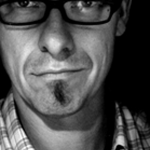When we speak of documentary film, we routinely think of films that picture life as is. Once in a while, it needs to be called to mind that documentaries involve interpretation. Nor do we normally see that the filmmakers engage in a relationship with their protagonists, which may suggest calling such films collaborative achievements. And, last but not least, the word ‘documentary’ does not express the effect those films have on ourselves, because any good film leaves us a different person than we were before we saw it. Empathy, courage, openness, clarity, insight and poetry – that’s what we, as audience, can take away.
The films we want to show have the potential of linking a diversity of stories and experiences from rural places and provinces all around the world and to foster a dialogue between filmmakers and audience, perhaps even involving the protagonists. They promote the will to expose ourselves to the world, not by means of agitation, but by describing things and appealing to our willingness to challenge and change our own positions.
Aesthetically, we conceive of our long documentaries programme to be neither pure enjoyment nor uncompromising denunciation. Enjoying a film is a good thing, but it may not always be possible. Some stories possibly cannot be told in terms other than those of terror. Then, the film has to build trust in us that the story is worth telling at all. It is this power which makes a good documentary.
Kenneth Anders, Udo Muszynski, Sven Wallrath
Programme Advisory Board 2015





![Sven_Wallrath[1]](https://filmfest-eberswalde.de/wordpress/wp-content/uploads/2015/09/Sven_Wallrath1-150x150.png)
![Tobias_Hartmann[1]](https://filmfest-eberswalde.de/wordpress/wp-content/uploads/2015/09/Tobias_Hartmann1-150x150.png)


![Sascha_Leeske[1]](https://filmfest-eberswalde.de/wordpress/wp-content/uploads/2015/09/Sascha_Leeske1-150x150.png)
![Katja_Ziebarth[1]](https://filmfest-eberswalde.de/wordpress/wp-content/uploads/2015/09/Katja_Ziebarth1-150x150.png)
![Lars_Fischer[1]](https://filmfest-eberswalde.de/wordpress/wp-content/uploads/2015/09/Lars_Fischer1-150x150.png)
![Nele_Fischer[1]](https://filmfest-eberswalde.de/wordpress/wp-content/uploads/2015/09/Nele_Fischer1-150x150.png)
